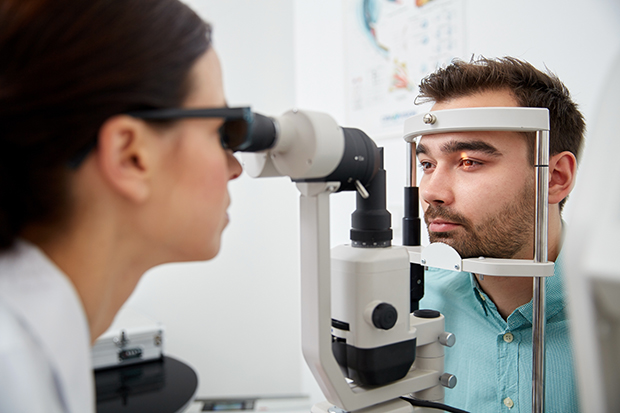
Submitted by Eye Surgical Associates
Many people are surprised by the ways diabetes affects overall health. Heart disease and nerve damage are two of the more serious complications that can result from either type 1 or type 2 diabetes. But did you know that diabetes can also wreak havoc on your eyes?
Diabetic retinopathy is a very serious disease that can have lasting, permanent effects on vision.
What is diabetic retinopathy?
Diabetes occurs when the levels of glucose in the bloodstream become unregulated due to either insulin resistance or an insufficient amount of insulin production. Chronic high blood sugar damages many of the body’s organs, particularly the kidneys, but others as well. When blood sugar levels begin to damage the eye’s blood vessels in the retina, diabetic retinopathy is often the result. When the blood vessels are damaged, they tend to become swollen, leak, and bleed. These fluids enter the eye cavity and begin to physically block the light from hitting the retina, which is what causes vision loss.
As the disease progresses, the retina may start to grow new, abnormal blood vessels to make up for the broken blood vessels. This only makes the problem worse, as these new blood vessels are weak and even more prone to breakage. This is considered the most severe form of diabetic retinopathy.
The stages of diabetic retinopathy
Without treatment or management, diabetic retinopathy gets worse as time goes on. It has four main stages. The first three stages (mild, moderate, and severe) are all considered “non-proliferative.” The final and most severe stage is referred to as “proliferative diabetic retinopathy.”
Mild non-proliferative retinopathy occurs when the blood vessels first begin to swell and leak fluid. If it is allowed to continue to the moderate stage, larger blood vessels that are crucial to providing nutrients also begin to swell. Severe non-proliferative retinopathy happens when most of the blood vessels in the retina become totally blocked, preventing blood flow.
Finally, when left untreated, the condition becomes “proliferative.” The retina begins to create those new, abnormal blood vessels we talked about. The continuous cycle of bursting and healing leads to scar tissue that can possibly lead to retinal tears and even a retinal detachment.
Prevention through management is key
Maintaining proper blood sugar levels is vital to preventing diabetic complications. However, due to the fact that the early stages of diabetic retinopathy have few (if any) symptoms, it’s an even better idea to schedule yearly checkups with your eye doctor. Detecting any problems early on can reduce the risk of blindness by 95 percent. By detecting the problem early, your eye doctor can devise a plan to keep it from progressing. Don’t risk your vision. Schedule an appointment with your ophthalmologist today!
For more information about vision health or to schedule a comprehensive eye exam, contact Eye Surgical Associates at 309-662-7700. Ophthalmologists Daniel Brownstone, Catharine Crockett, Scott Pinter, and Optometrist Kathleen Vize will be happy to assist you. ESA is located at 1505 Eastland Drive Suite 2200 in Bloomington.

